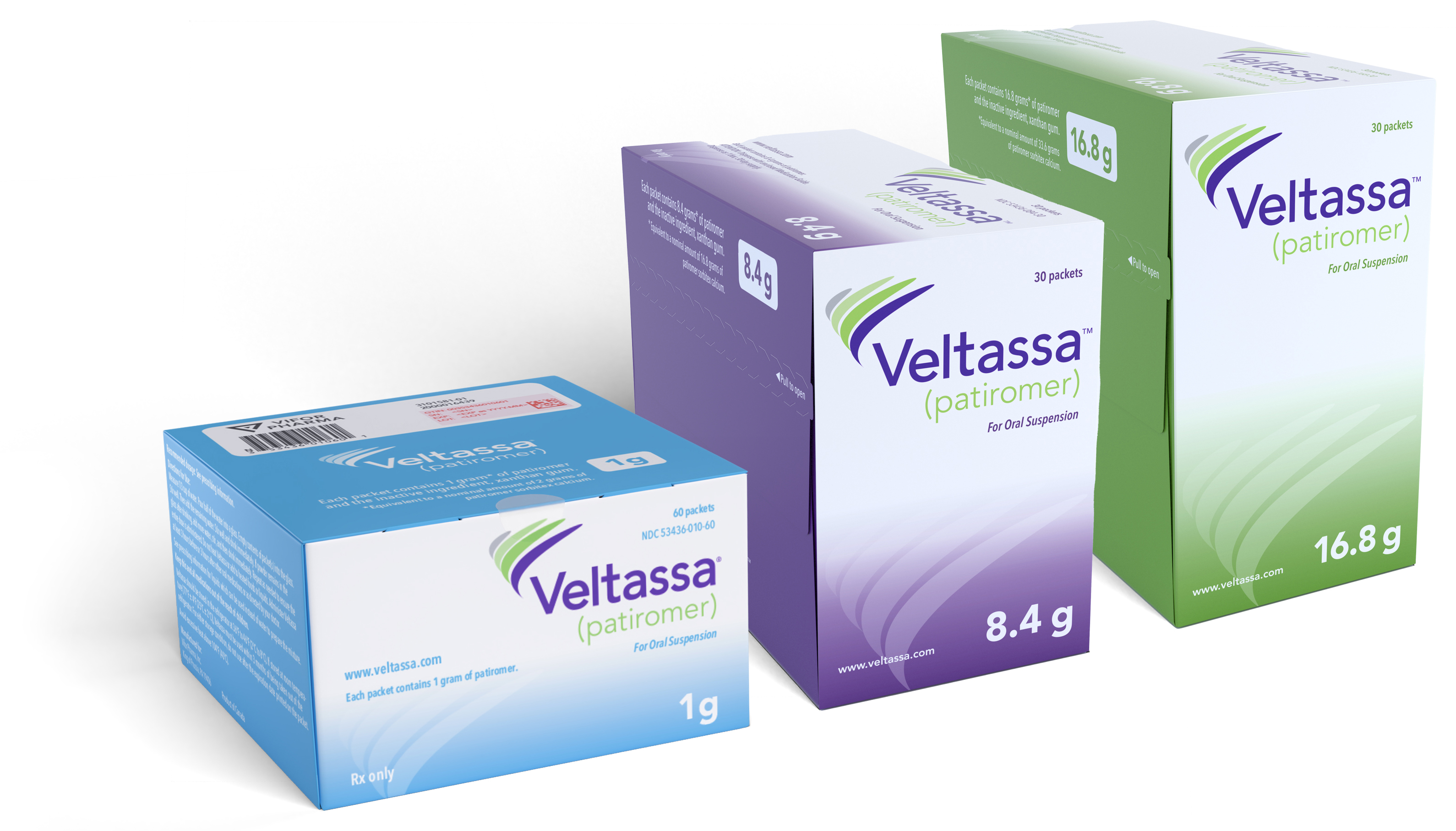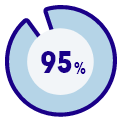VELTASSA is a prescription medication used to treat high levels of potassium in your blood (hyperkalemia). It is approved for use in adults and pediatric patients ages 12 years and older.
Important Safety Information Back to Top
Back to Top
Who should not take VELTASSA?
Do not take VELTASSA if you are allergic to VELTASSA or any of its ingredients.
What should I tell my doctor before taking VELTASSA?
Before you take VELTASSA, tell your doctor about all of your medical conditions, including if you:
- have problems having a bowel movement, including if you have severe constipation, a blockage (obstruction) in your bowel, or dry hard stool that will not pass out of your rectum (impaction)
- have problems with your bowels after surgery
Know the medicines you take. Keep a list of them to show your doctor and pharmacist when you get a new medicine. Tell your doctor about all the medicines you take, including prescription and over-the-counter medicines, vitamins, and herbal supplements.
What are the possible side effects of VELTASSA?
VELTASSA may cause serious side effects, including:
- Worsening of bowel function
- Low levels of magnesium in your blood (hypomagnesemia). Low levels of magnesium in the blood can happen when taking VELTASSA. Your doctor will check the magnesium levels in your blood during treatment with VELTASSA and may prescribe a magnesium supplement.
The most common side effects of VELTASSA in adult patients include: constipation, low levels of magnesium, diarrhea, nausea, stomach-area (abdominal) discomfort, and gas. The safety profile of VELTASSA in a study in pediatric patients was similar to that in adults.
Tell your doctor if you have any side effect that bothers you or does not go away. These are not all of the possible side effects of VELTASSA. You may report side effects to FDA at 1-800-FDA-1088 or www.fda.gov/medwatch.
The risk information provided here is not comprehensive and does not take the place of talking with your doctor about your medical condition or treatment. To learn more about VELTASSA, talk with your healthcare provider or pharmacist. Please click here for full Prescribing Information.



